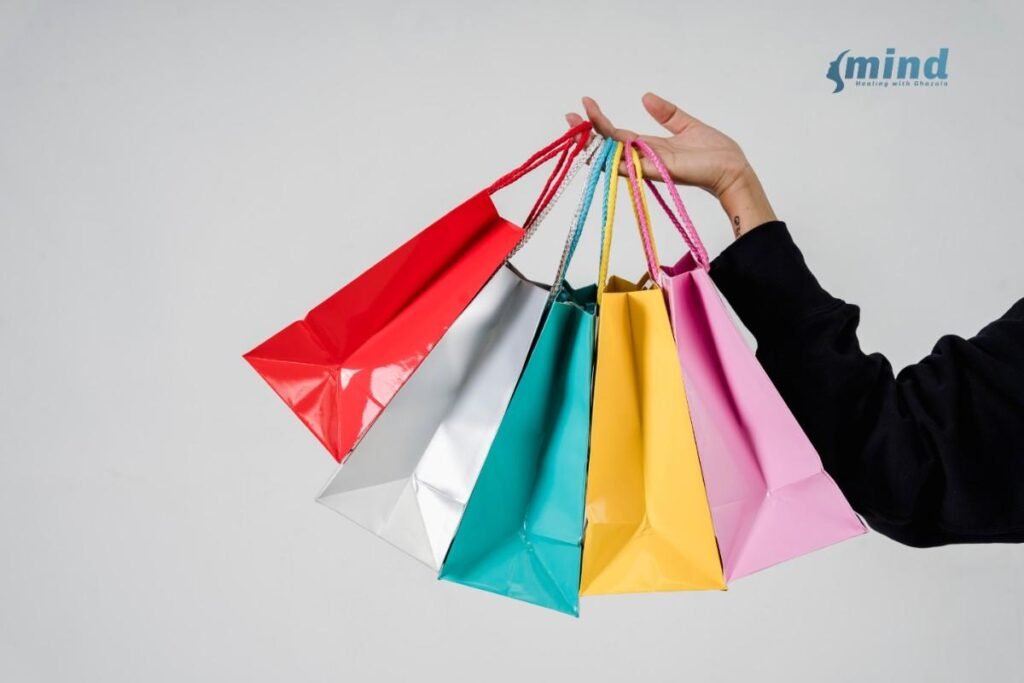If you feel like shopping is controlling your life instead of the other way around, you’re not alone. Many people struggle with shopping addiction also known as compulsive buying, and the emotional, financial, and relational damage it can cause. One of the most effective ways to start regaining control is to connect with others who understand your struggle. That’s where self-help groups come in.
How to Recognize Compulsive Shopping Patterns
Everyone enjoys buying new things once in a while, but compulsive shopping feels different. Warning signs include:
- Buying items you don’t need, even when money is tight
- Shopping to relieve stress or escape negative emotions
- Hiding purchases or receipts from family and friends
- Feeling guilt or regret immediately after shopping
- Struggling with debt or financial hardship due to spending
- Failed attempts to cut back on your own
If this sounds familiar, you might benefit from the support of a community that “gets it.”
Why a Support Group Can Make All the Difference
Fighting addiction in isolation is tough. Support groups offer:
- Connection – knowing you’re not alone in the struggle
- Understanding – members share real stories you can relate to
- Accountability – encouragement to stick to your goals
- Relief – a safe space to talk about guilt, anxiety, or shame
- Hope – seeing others who are further along in recovery
Sometimes just hearing “me too” is enough to help break the cycle of secrecy and guilt.
Popular Groups That Help With Shopping Addiction
There are a variety of communities, both in-person and online:
- Debtors Anonymous – focuses on financial recovery and accountability
- Spenders Anonymous – a 12-step program modeled on AA, centered on curbing compulsive spending
- Stopping Overshopping – founded by Dr. April Lane Benson, offering online coaching, groups, and recovery tools
- Shopping Addiction Support Group (online) – a large global community where members share experiences and encouragement
Each group has its own style. Some are structured with steps and sponsors, while others are more casual and peer-led.
What to Expect When Joining a Group
Walking into your first meeting (or logging into your first online group) can feel intimidating. Here’s what usually happens:
- Meetings often start with introductions and a reminder that everything shared is confidential.
- Members talk openly about their challenges and progress.
- No one is forced to speak—you can simply listen at first.
- Support is non-judgmental, compassionate, and anonymous.
Over time, you’ll likely find yourself opening up and even offering support to others. That’s when the real healing begins.
Barriers That Keep People From Joining
Many people hesitate to try a group because they feel:
- Embarrassed about their addiction
- Afraid others won’t understand
- Unsure if they “deserve” help since shopping feels less serious than drugs or alcohol
But shopping addiction is just as real, and just as destructive. These groups exist because thousands of others have felt the same way and found relief by sharing.
Tips for Getting the Most Out of a Support Group
- Attend consistently, even if you don’t feel like it
- Be honest about your struggles—it’s how you’ll get the most support
- Set small, realistic goals between meetings
- Pair group support with other strategies like therapy, journaling, or financial counseling
- Celebrate progress, even small wins like resisting one impulse buy
When It’s Time to Seek Professional Help
Self-help groups are powerful, but sometimes extra support is needed. If compulsive shopping is causing debt, relationship breakdowns, or significant emotional distress, speaking with a mental health professional or financial counselor can help.
Cognitive Behavioral Therapy (CBT) is especially effective, as it helps you identify and change the thoughts that fuel overspending. In some cases, medication may also be recommended if shopping addiction is linked to anxiety or depression.
Beyond Groups: Building a Healthier Relationship With Money
Recovery isn’t just about saying no to shopping—it’s about building a new, balanced lifestyle. Helpful practices include:
- Creating a written budget and tracking expenses
- Removing saved credit cards from online stores
- Practicing mindfulness before making purchases
- Replacing shopping with healthier coping strategies like walking, journaling, or calling a friend
Key Takeaway
Shopping addiction can be overwhelming, but it doesn’t define you. Self-help groups provide a safe place to connect, heal, and regain control of your finances and your life. Remember: asking for help isn’t a weakness—it’s the first step toward lasting freedom.




1 Comment
Need to login or register on the Plus777 app? This plus777apploginregister link is super helpful. Register and login in one place!